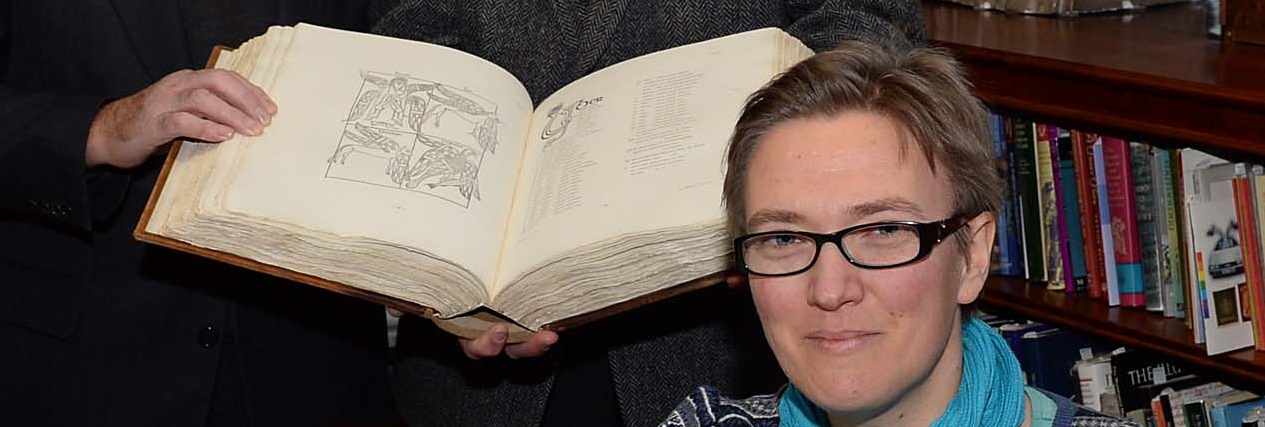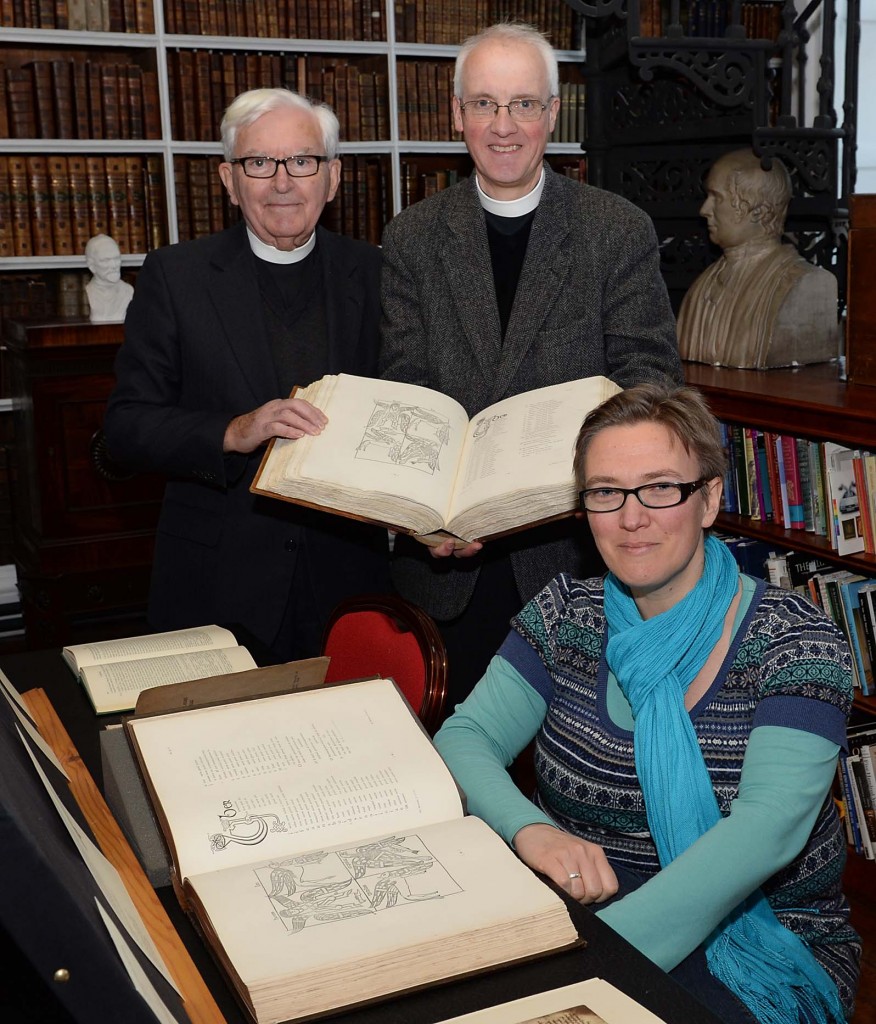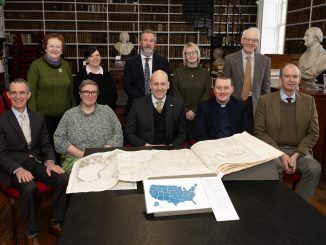

The Book of Armagh is a priceless manuscript written by the monastic scribe, Ferdomnach, in Armagh around the year 807 AD. In 1913 it was reproduced in a limited edition of 400 copies. To mark the centenary of this edition, Armagh Public Library has mounted a small exhibition, which will run until the end of January 2014.
The exhibition includes copies of the 1913 reproduction, and other relevant material from the Library’s collections. Canon Ted Fleming, formerly Chancellor of St Patrick’s Cathedral, has compiled a short history of the Book of Armagh, tracing the conditions under which it was written and kept, until it found its way to Trinity College, Dublin, where it remains to this day.
The Library is marking this centenary for three reasons. First, the Book of Armagh is a tangible connection with the first centuries of Christianity in Ireland, and with the origins of Armagh as its ecclesiastical capital. Second, as Canon Fleming states in his booklet: ‘It is generally accepted that The Book of Armagh was most likely written in the ancient Abbey of St Peter and St Paul, which stood near the top of Abbey Street, …’ This would have been across the road from where Armagh Public Library now stands.
The third reason is the connection with Dr William Reeves, a former Keeper of Armagh Public Library, antiquarian, scholar and bishop. Reeves carried out research over many years towards the publication of ‘The Book of Armagh’. Unfortunately, he died before the task was completed and his work was handed on to Dr. John Gwynn, Professor of Divinity at Trinity College, Dublin, who finalised the work for publication. Dr Gwynn spent more than twenty years on this work, which included a reproduction of the text in modern type, page by page, line by line, word by word and letter by letter. He also supplied a detailed introduction and appendices.
The current Keeper of Armagh Public Library, the Very Revd Gregory Dunstan said, ‘The Book of Armagh is a great treasure that we lost. The reproduction of 1913, however, is a monument to scholarship in its own right. We are most grateful to the Library’s Archivist, Thirza Mulder, and to Canon Fleming, who have enabled us to remember Ferdomnach, Reeves and Gwynn in this way.’

![Launch of the exhibition Of All the Pleasures in the World, Travell is [...] the Sweetest and Most Delightfull : Travel Literature in Armagh Robinson Library](https://armaghrobinsonlibrary.co.uk/wp-content/uploads/2017/07/Travel-exhibition-1-1280x832-scaled.jpg)

